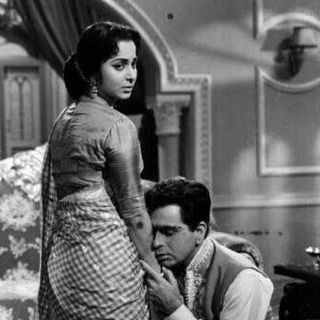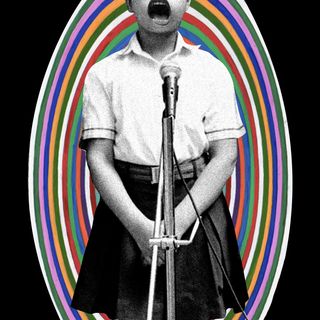In It’s Okay, we defend our most embarrassing, unpopular opinions.
The fashion influencer you follow for saree-draping tips has been doing Pilates with green plants in her house that makes her butt look killer; the celebrity you follow has been posting heartfelt love letters to her celebrity husband while flaunting designer ‘home’ looks; that hot acquaintance you once met at a party is sharing no-makeup selfies that make you never want to look into a mirror again. Women are out there looking beautiful, being productive, feeling loved, sharing hope, and all of it makes you want to hide in your unwashed blanket forever because it’s disgusting and that’s just the validation you need for your own spiral of self-deprecating thoughts. It makes you envious.
At the same time, you’re inundated with shine theory everywhere you look — how to lift up other women, memes that say ‘other women’s beauty is not the absence of your own,’ while your mind spews out feminist tips and tricks at you to stop wishing you had what other women do, or worse, wishing they didn’t have what they do so you could gloat. But it’s just not working. You’re constantly teetering on the edge between feeling like a horrible person and allowing yourself a few moments of fantastical vindication that manages to fight through.
Well, you’re okay. How you’re feeling is not only normal, but it’s also expected, even justified. We live in a heteronormative society in which everyone presumes women are vying for the attention of fickle, beauty-obsessed men, while also predicting an (inaccurate) scarcity of said men over whom we’re supposed to compete — the more passive-aggressive, the better. We’ve seen it as kids with the Anjalis and Tinas of St. Xavier’s College, as teenagers with the Shanayas and Sanas of St. Teresa’s High School, and as adults with the Nainas and Laras of the world. We’ve seen women both on-screen and off-screen conditioned to presuppose the existence of a social hierarchy that they’re desperate to find their place in, mentally stampeding the others out of the way. Now, it’s become more a knee-jerk reflex, albeit one that has instantaneous self esteem-shattering capacity. Now that’s all done and dusted, so at least you can take solace in the fact that it’s generations of conditioning and not your evil unfeminist brain trying to make you slip up and reveal your social justice imposter syndrome.
Related on The Swaddle:
It’s Okay: To Feel a Little Less Hot Under Lockdown
And what if feeling that little bit of envy is actually good for you? We think envy is a blanket painful emotion, one that drags us down. But sociologists have demarcated a very fine line between two types of envy — malicious envy that leads us to complain about the object of said envy, presumably to bring their reputation down in our own minds or in the minds of anybody who will deign to listen; the other is benign envy, still painful, but it’s one that gets directed inwards and pushes us to work harder to achieve whatever it is we’re envying the other person for. The latter can foster competition and self-improvement, whether it be getting that workout in, or working harder at a job where your colleague is killing it.
That said, these are complicated emotions, which often become impossible to decipher if you’re a woman who has been conditioned to envy every other woman, for every other trait. So, maybe, we just take a beat and stop trying to fix us. Don’t harass those women for making you feel bad, obviously, but feel the envy, anyway; really revel in it; stew in it. Let the envy rattle around in your head, making you drum up flaws in the women you envy. To be sure, someone is wishing you pimples on your Instagram profile, just as you’re wishing a bad hair day on someone else. We’ve had enough solidarity for women’s accomplishments. Once in a while, it’s okay to share in some flaws. There is a time and place for self-growth, and a pandemic isn’t it.
You’ll be alright.




